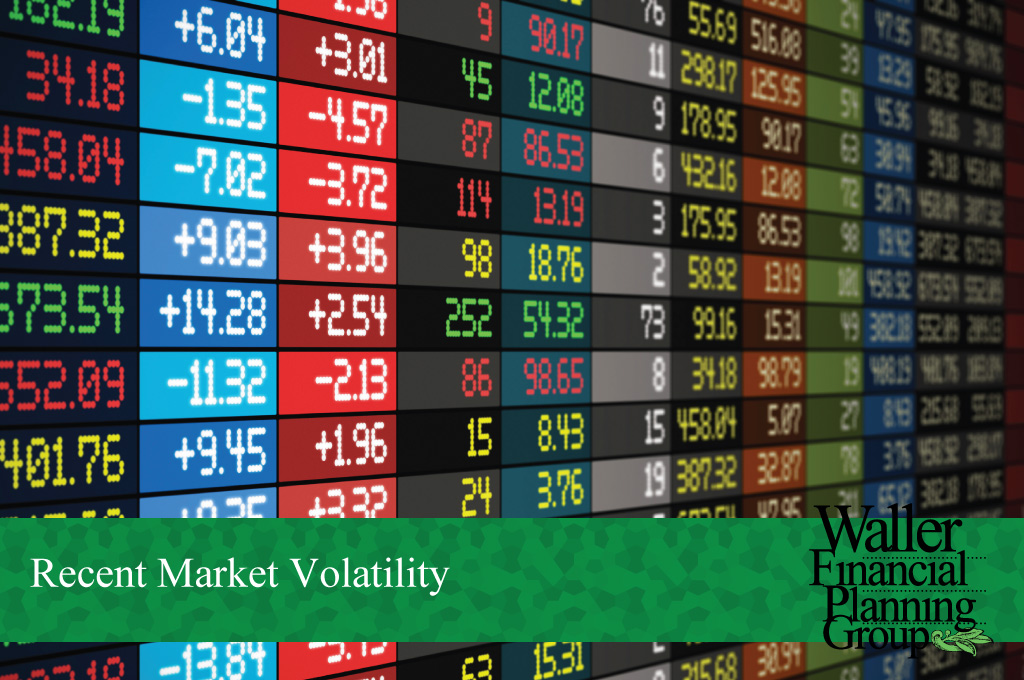
We have seen a sharp broad-based market[1] pull back the last few days, and we are looking at a considerably lower open to start the week. Given the abruptness of the downward movement, we wanted to reach out and share our thoughts. Anytime movements like this occur, our concern is heightened.
Our initial objective is to put the situation into perspective: the market[2] is down over 12.5% from the all-time high hit in May. Declines of 10% or more are not uncommon; in fact, just last October, the market fell by 10%. We also have to remember the reason stocks have produced higher returns is because they have greater risks. In times like this, the reality of investment risk becomes realized as markets sell-off. The main driver of long-term returns is valuations; however, it’s emotion or attitude toward risk that influence short-term investment returns. As Peter Lynch stated so well, “The real key to making money in stocks is not to get scared out of them.”
Our next move is to reassess our investment stance. Is what’s occurring economic strain or severe economic deterioration? There are a few major themes influencing the market right now, which are China, Federal Reserve policy, and global economic weakness. These are not new issues to which the market is reacting. In fact, we have talked about them for a while; however, what has changed is how economically weak China may really be, coupled with some unnerving actions its government has taken. China is the world’s second largest economy, and what they do impacts the rest of the world. In light of China’s actions, we are reassessing our expectations of what the Federal Reserve’s actions may be in the coming weeks. As of a couple of months ago, there was a large contingency, ourselves included, which believed the Federal Reserve would begin to raise interest rates at its September meeting. That action is very much in question now.
Sharp sell-offs like this are unnerving. We understand your concerns and it’s quite reasonable to question: How much lower could we go? What should we expect in the near future? How does this impact our financial plan?
We expect to see heightened volatility out of the market for the next couple of weeks, as fear and uncertainty continue to dominate; however, we expect to see an upward bounce after investors realize valuations are fair, the U.S. economic growth is reasonable and the Federal Reserve offers more direction. This type of volatility reinforces the need for maintaining a diversified portfolio. As a case and point, bonds[3] have rallied during this time period in which stocks have sold off. The bond rally has mitigated some of the portfolio losses. As long as your asset allocation model is in alignment with your goals, risk aversions and cash flow needs, there is no need to deviate from the plan.
We consider this current situation to be temporary, and as such, will not impact any of the longer-term financial decisions you have made. While seeing the market fluctuate like this is never pleasant, it is a reality of investment markets. Fear and volatility are important components of a healthy market. Having the investment discipline, and not allowing them to control our actions, is key to investment success.
We appreciate the faith and trust you have placed in us. Please do not hesitate to let us know if you have any questions or concerns.
[1] Morningstar Office 2013; The Dow Jones Industrial Average
[2] Morningstar Office 2013; The Dow Jones Industrial Average
[3] Morningstar Office 2013; Bonds as measured by the Barclays US Aggregate Bond Index, Barclays Municipal Index, and the Citi World Government Bond Index
Warmest Regards,
The Waller Team
The opinions voiced in this letter are for general information only and are not intended to provide specific advice or recommendations for any individual. All performance referenced is historical and is no guarantee of future results. The economic forecasts set forth in this printing may not develop as predicted and there can be no guarantee that strategies promoted will be successful. Stock investing involves risks, including loss of principal. Bond values will decline as interest rates rise and bonds are subject to availability and change in price. There is no guarantee that a diversified portfolio will enhance overall returns or outperform a non-diversified portfolio. Diversification does not protect against market risk.





